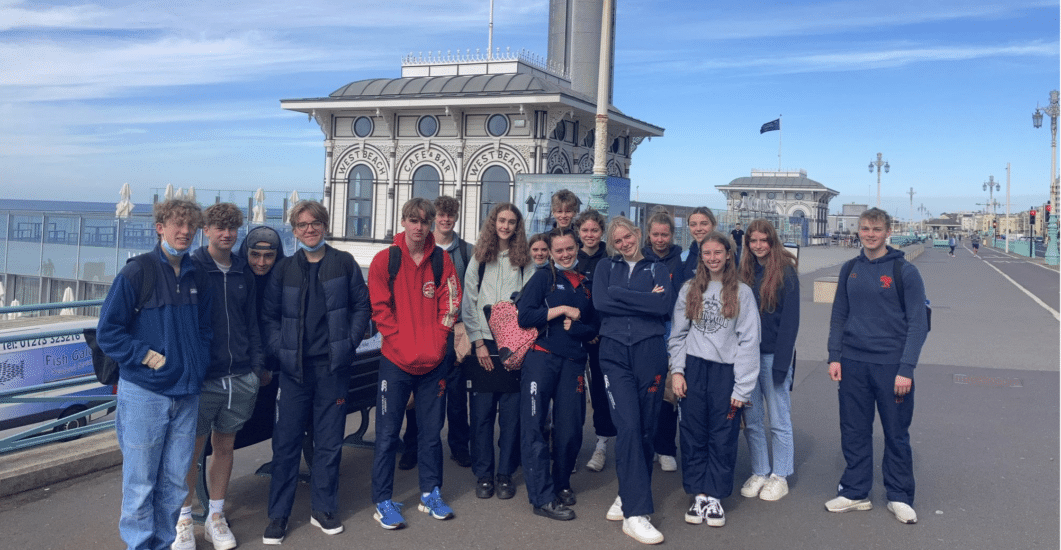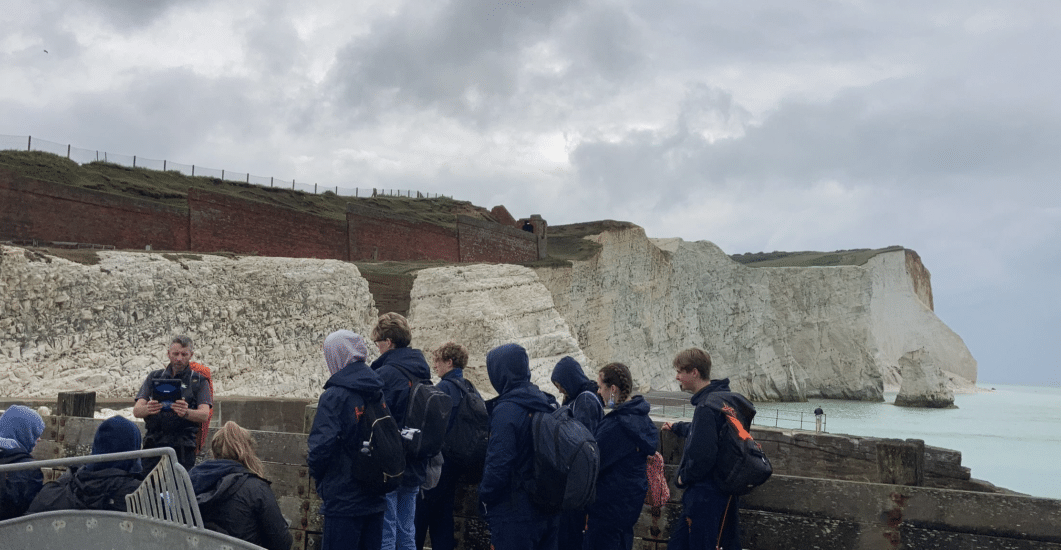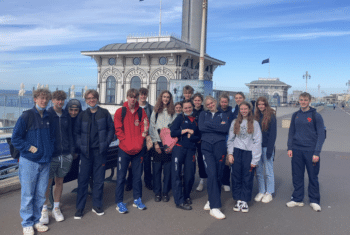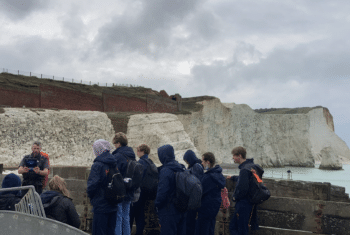Lower Sixth students embarked on three, non-residential days, of geography fieldwork to prepare for their non-examined assessments (NEA).
From 21- 23 June, students broadened their horizons beyond the confines of the curriculum by experiencing ‘geography in the field’. Worth 20% of the A-level, students choose any aspect of the curriculum to investigate and complete their NEA. Therefore, these trips serve as a vital part of the course.
Help from the Field Studies Centre at Juniper Hall in Dorking was again enlisted to provide expert advice and experience in preparing students for their data collection. During the first two days, students embraced a range of fieldwork opportunities and practised techniques to enable data collection. With two field trips cancelled earlier this year, it was important to record solid data to support students’ chosen enquiry.
Statistical analysis
Students trekked around a wet Dorking on Monday, exploring ways the place is perceived, gathering statistical analysis to follow up. Tuesday, they headed to Seaford and Newhaven beaches to explore methods of analysing flood risk, beach management techniques and tourism. During these two days, they devised their own aims, title, and methods of enquiry to complete their own investigations.
Based on the range of titles put together, all students travelled to a sunny Brighton on Wednesday. Independently gathering data, they talked to locals and tourists to complete their fieldwork assignments.
“ These fieldwork days were a resounding success, and a good amount of data was collected for students to follow up to complete their NEAs. A huge thanks again to FCS Juniper Hall who continue to provide expert tutoring and support. We will be returning next year! ” Beccy Bownas, Head of Geography
Find out more about Academic life in the Sixth Form at Hurst College
Read about Juniper Hall Field Studies Centre








